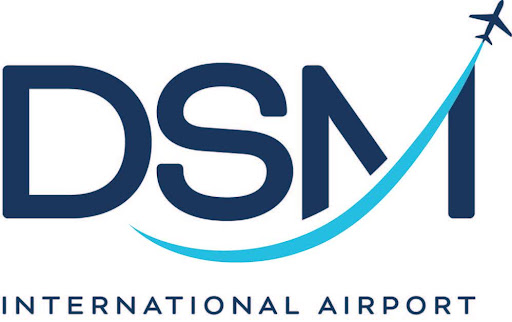A new game plan
Don Smithey is taking on the challenge of transforming the Des Moines airport

Ticket prices were among the highest in the nation. Passenger numbers were declining.
Des Moines City Manager Rick Clark felt a timeout was necessary.
“There was a sense that something needed to change,” Clark said. “It just seemed like we needed a new game plan.”
The person who could lead that game plan was living in West Des Moines, though he was relatively unknown at first. So much so, that when former Omaha business executive David Sokol told a Des Moines International Airport board member that Don Smithey was living the area, the response was, “Who’s Don Smithey?”
“I said, ‘He happens to be retired in your community, but he’s the guy who literally transformed Omaha’s airport,’” Sokol said.
About two years after taking over as the airport’s executive director, Smithey is trying to do the same thing in Des Moines.
“One word I do not want on my tombstone is ‘mediocrity,’” Smithey said. “I try to instill that in all the people who work for me. We’re going to do the job here. We’re going to do it well. And there’s not going to be any tolerance for sloppy work.”
The enthusiast
Some boys grow up dreaming of becoming a policeman or a fireman or a pro football player. Smithey just wanted to fly.
“It’s very difficult to explain, to verbalize that passion. It’s there,” Smithey said. “I recall at a very early age, as far back as I can remember, when there was an airplane overhead, I had to look up. If I saw one, I had to watch where it went. That didn’t change as I grew up.”
A St. Louis native and graduate of Durant High School in eastern Iowa, Smithey worked at the grocery store to save enough money for flying lessons as soon as he was old enough.
His love eventually led him to airport management, which was “probably the best thing that ever happened to me,” he said.
Smithey worked his way up to airport director at St. Louis Regional Airport Authority and then spent a couple of years as assistant director of the Cedar Rapids Municipal Airport, where he faced a defining moment of his career.
Smithey was selected to become the airport’s director, but he felt that the airport commission was asking him to do something in his duties that would be deemed unethical. His response: “I said, ‘You have two weeks. You are asking for problems when you do something like this.’”
He left, and spent six months without a job before taking a position in Omaha. Smithey’s daughter, who was in grade school at the time, wrote in her diary that having to move and leave her friends was the worst day of her life, and before the hire, Smithey himself questioned whether he wanted to stay in the profession.
As it turned out, the ethical issue Smithey refused to be a part of went to the Iowa Supreme Court, which defined it as fraudulent misrepresentation. Smithey says now that his decision then gave him an “abiding faith in myself to make good decisions” for the rest of his career.
Years later, when Smithey spoke to students at the University of Nebraska at Omaha’s Aviation Institute, which he led the way to form in 1990: “I said, ‘Always be prepared to lose your job.’ Because if you are being asked to do something that is either unethical or has the shade of being illegal, then you stop right there. Don’t do it because you think this is the way business is done. Because it isn’t.”
Transforming Omaha
Smithey landed on his feet, taking the job at Eppley Airfield in Omaha in 1985. He became the director in 1989, and in his 20-year tenure, Eppley’s annual passenger traffic doubled to 4.5 million, airfares went down and people began to take pride in the airport.
“We went through a growth stage not only in physical plant, with runway improvements and extensions and taxiways, but with the business growth that he and I and the rest of the board nurtured to come to our city,” said Willy Theisen, the Omaha founder of Godfather’s Pizza who chaired Eppley’s aviation authority during Smithey’s time as director.
Perhaps his biggest single accomplishment was getting Southwest Airlines Co. to add service to the airport. The airline is well known for the “Southwest Effect,” which forces more price competition from other airlines based on Southwest’s typically lower airfares.
Smithey says he spent almost 10 years persuading Southwest to add service. He would send Southwest officials passenger information every month and called them every six months. In 1995, Eppley was the only airport that Southwest added.
“It really made us,” Smithey said.
Beyond that, Smithey earned a reputation for bringing out the best in himself, the people he worked with and the people who worked for him. He set expectations, made sure employees knew how to meet those expectations and held them accountable for doing so, Sokol said.
His personality is straight and to the point, say those who worked with him. His desk was clean, meetings were run with efficiency and he wasn’t afraid to diplomatically give his opinion. And his work ethic was thorough.
Theisen recalls a time when he flew into Omaha on a late evening flight during a snowstorm.
He was coming through the terminal, “and there was Don Smithey, a tie on, a clean shirt, a jacket, and clearly making sure that everything was running properly,” Theisen said. “This may happen in the movies, but in real life, it doesn’t always happen.”
It all added up to producing a clean and well-run airport that was known for serving airlines and passengers well.
“I think he just made it a model as far as an outstanding airport,” said P.J. Morgan, former mayor of Omaha and current member of the airport’s aviation authority.
Out of retirement
Rick Clark believes that for Des Moines, timing was everything.
Ed Hansell, now the chairperson of the airport’s aviation authority, and Clark didn’t know who Smithey was when they were first tipped off that he was in the area. But they knew the reputation that Eppley Airfield had.
In 2010, Des Moines needed an airport director following Craig Smith’s resignation. Clark and Hansell reached out to Smithey to take over on an interim basis, and asked him to take six months or so to analyze the airport’s issues and give recommendations.
Smithey not only made recommendations, but made two rather large suggestions that have come to fruition.
His first recommendation was to change the governing structure from being a department of city government to a five-member airport authority, which would be run more like a business. Des Moines implemented the authority last November, and Smithey’s interim tag was removed.
His second recommendation was to pursue Southwest Airlines as a low-cost carrier. City leaders had pursued Southwest several times in the past, but they never had Smithey leading the way.
Smithey had built a relationship with Southwest from his time in Omaha, and even advocated for the airline in the mid-2000s, helping erase a federal law that had prevented the Dallas-based airline from traveling nonstop to any city not in Texas or in an adjacent state.
“I’d just say that when it comes to Don Smithey, it’s pretty simple. We know him. We like him and we trust him,” said Ron Ricks, executive vice president, chief legal and regulatory officer at Southwest Airlines.
Smithey contacted some Southwest officials that he knew and proposed to meet with them in Dallas.
“They said, ‘How about we come up there?’” Smithey said.
From there, another meeting was scheduled with high-level Southwest officials and Gov. Terry Branstad, Mayor Frank Cownie, Clark and a few airport officials.
Smithey recognized that Des Moines had an opportunity when Southwest acquired AirTran Airways, which already provided service to Des Moines. He knew that Southwest wouldn’t come to Des Moines on his word alone, but also knew what information officials would want to see to know that the airline could be profitable in Des Moines.
“They were willing to hear me out,” Smithey said. “That’s a lot of it.”
Southwest announced in January that it would add twice-daily service from Des Moines to Chicago’s Midway International Airport. Within two years, Smithey had accomplished what Des Moines officials had tried to do for decades.
“I can just tell you that Southwest wouldn’t be coming to Des Moines if it weren’t for Don,” Clark said. “There’s just hands down no question that Don’s the guy that got Southwest to come here.”
Smithey’s third large recommendation to Clark was to evaluate the airport’s facilities and set the table for potentially building a new terminal in the future. The current building, Smithey said, is old, and expansion is difficult due to building restriction lines. When passenger demand calls for it, Smithey would like the airport to be in a position to build.
Any plans to move forward on expansion will likely be after his second retirement. Until then, he’s trying to make sure that the airport’s staff is ready for not only that project, but to make the Des Moines airport a “crown jewel.” The ceiling is unlimited, he said.
Hansell and Clark both see him laying a foundation for the future.
“There are a lot of people that can do a job really well and keep things going, but there’s not too many people that can really be transformative, and really make things a lot better a lot faster,” Clark said. “I think Don certainly has that ability.”
Ready for takeoff
Don Smithey didn’t take over as Des Moines International Airport’s executive director to keep the seat warm. He was hired as the interim aviation director (a position that became executive director) in March 2010, but his impact so far has been anything but interim. A look at some of Smithey’s recommendations and implementations:
Governing structure change
The airport’s governing structure has changed from an airport board under Des Moines City Council jurisdiction to a five-person airport authority. The airport authority model allows for the airport to run more like a business, Smithey said, and decisions only have to go through one governing body instead of two. The authority model “makes all the difference in the world,” Smithey says.
Southwest Airlines
When Smithey calls, Southwest listens. Smithey was able to convince Southwest officials that the company could be successful in Des Moines.
The little things
A staple of a Smithey-run airport is, of all things, having clean restrooms. Beyond that, in Des Moines, the airport authority has given its approval for buildings to be painted that hadn’t been painted for a long time. A clunky security scanner for checked luggage was moved from the public terminal area to a room behind the ticket counter. “I take a lot of pride in this facility,” he said.
Highway renaming
Smithey is a proponent of redesignating the U.S. Highway 65/Iowa Highway 5 bypass as an interstate highway in order for the airport to have more direct interstate access.











